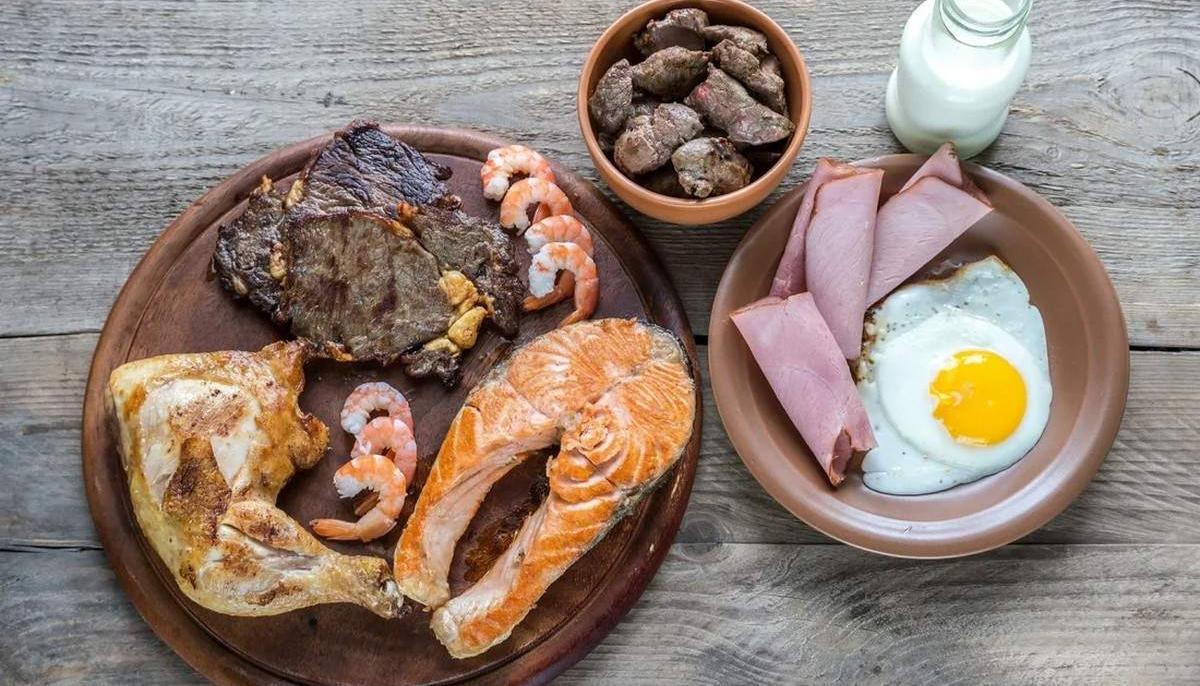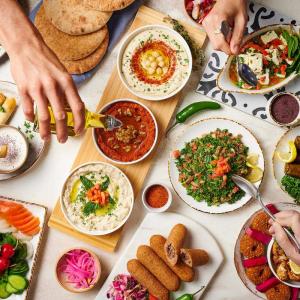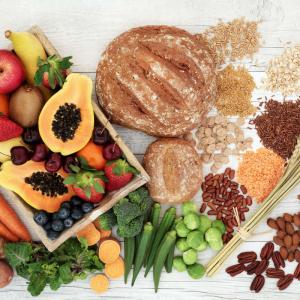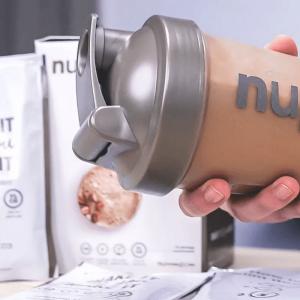What does the Dukan diet consist of?
According to the diet specifications, people who want to lose weight following this type of diet can consume up to 100 different foods without quantitative restrictions, as long as the daily menu follows certain well-defined rules.
The diet is based on the consumption of meat, fresh fruits and vegetables as little processed as possible and at the same time encourages the adoption of an active lifestyle to potentiate the effects of dietary restrictions.
Of the 100 allowed foods, 68 are pure proteins, and 32 are represented by low-starch vegetables that can be gradually introduced into the daily menu according to a series of specific stages.
The stages of the diet
This type of hyperprotein diet is subdivided into 4 distinct stages according to the type of foods allowed in each phase and the final results that are desired to be obtained. The first two phases are more restrictive in terms of the variety of foods allowed and aim to start the weight loss process by changing the metabolism.
The last 2 stages of the Dukan diet are more flexible and allow food diversification in order to stabilize the body weight reached, after completing the previous stages.
Phase 1 – attack
Phase I or the attack phase aims to initiate the weight loss process and stimulate ketosis (the body consumes fats to obtain energy instead of carbohydrates) by giving up complex carbohydrates.
- In this phase, it is recommended to consume lean proteins from fish, eggs, low-fat dairy products, 1 half spoon of oat bran and at least 1.5 l of water per day (approximately 6 glasses). Artificial sweeteners, shirataki noodles and those with low carbohydrate intake can be consumed without restriction, but it is recommended to limit the intake of vegetable oil, lemon juice and pickles.
- In general, this first stage is between 3 and 7 days depending on the body weight that is intended to be lost and the progress achieved in each individual case.
- Moderate physical exercises have the role of potentiating the effects of dietary restrictions and performed regularly can reduce the number of days allocated to this first stage by speeding up the weight loss process.
Phase 2 – cruise
The second stage, also called the cruise phase of the diet, provides for the inclusion of non-starchy vegetables in unlimited quantities (of the 32 types allowed) along with proteins and aims to continue the constant and gradual decrease of excess weight. Along with vegetables and proteins, it is recommended to increase the intake of oats to 2 tablespoons per day and it is allowed to use olive oil in small quantities during meal preparation.
- During the cruise phase, it is recommended to alternate the days in which only proteins are consumed with those in which vegetables are associated with 1, 2, 3, 4 or even 5 days equally (the number of days in which only lean proteins are consumed should be equal to the one in which proteins are associated with vegetables).
- The duration of the cruise phase depends on the ideal weight that you want to reach, but usually in this phase you lose 1 kg every 3 days.
Phase 3 – consolidation
The 3rd, consolidation phase of the Dukan diet helps to maintain the previously obtained weight and prevents regaining the kilograms from before the start of the regime with the mention that the person must respect the rule of maintaining a pure protein diet 1 day a week (ie 1 day from 7 at your choice to comply with the rules specified in the attack phase).
The daily consumption of oat bran and physical exercises must still be respected during the consolidation phase, together with an appropriate water intake adapted to the metabolic needs and physical effort.
Phase 4 – stabilization
The last stabilization phase of the Dukan diet basically includes 3 rules with long-term application, namely:
- Daily consumption of 3 tablespoons of oat bran.
- Respecting the protein regime for 1 day a week.
- Walking for 20 minutes daily.
In this stage, there are no dietary restrictions, but moderate consumption of fruit and alcohol is recommended.
Dukan diet forbidden foods
The main types of food prohibited in the Dukan diet are represented by:
- Fatty meat
- Fruits - bananas, cherries, grapes, figs, avocados
- Dairy products rich in fat - milk, butter, cheese
- Potatoes
- Nuts, seeds
- Whole grains, bread, pasta, rice
- Old
Dukan Diet food allowance
The main protein-rich foods allowed in the Dukan diet are represented by:
- Poultry without skin,
- Beef, pork and game
- Fish and seafood
- Eggs
- Low-fat dairy products
- Soy products, tofu and seitan (meat substitute obtained from wheat gluten).
- Along with these, daily consumption of oat bran, goji and lemon juice in moderation is recommended.
The main types of vegetables allowed in the Dukan diet include those low in starch, namely:
- Mushrooms
- Green beans
- Pumpkins
- Carrots
- Artichoke
- Eggplant
- Onion
- Leek
- Salad
- Cabbage
- Rocket
- Cucumbers
- fennel
- Tomatoes
- radishes
- Asparagus
- Celery.
Foods rich in starch allowed once a week include:
- Potatoes
- Dried beans
- chickpeas
- Dry peas
- The rice
- maize
- Floury pasta
- Other types of cereals except oats.
Fruits allowed starting with the 3rd stage include:
- More
- Pere
- Peaches
- Nectarine
- Oranges
- Strawberries
- Blueberries
- Raspberry
- apricots
- Tangerines
- Kiwi.
The benefits and risks of the diet
The Dukan diet is very popular among people who want to lose excess body weight, but cannot give up meat intake, being effective due to its benefits represented by:
- The ability to provide the feeling of satiety as a result of increased protein consumption.
- Maintaining ghrelin (known as the "hunger hormone" has the role of stimulating appetite and increasing food intake) within physiological limits.
- Maintaining glycemic balance.
However, hyperprotein diets present a series of shortcomings that can generate multiple nutritional deficiencies when adopted in the long term .
The total protein intake obtained by adhering to the Dukan diet exceeds that recommended by nutritionists, while limiting fruit consumption can generate a significant vitamin deficiency, with unpleasant consequences. Additionally, in certain categories of people, inducing ketosis by eliminating carbohydrates from the diet increases the risk of ketoacidosis manifested by nausea and vomiting .
Maintaining hyperprotein food regimes for long periods can cause liver and kidney diseases, osteoporosis and cardiovascular disease and is not recommended for overweight people or those prone to this type of disease.
How does carbohydrate restriction affect long-term health?
Most diets that restrict the intake of carbohydrates offer satisfactory results only in the short term and can deprive the body of a series of macro and micronutrients essential for good functioning if they are applied for long periods.
Over time, it has been found that restrictive diets slow down the metabolic rate and cannot sustain weight loss in the long term , most of those who follow such a regime are prone to regaining fat after returning to normal eating.
Even if the Dukan diet is effective for rapid weight loss, it is not recommended for insulin-dependent diabetics, those suffering from heart failure, severe eating disorders, kidney diseases, pregnant and lactating women. It is desirable that before adopting a restrictive diet such as the Dukan diet, a dietician should be consulted who can offer personalized advice according to the particularities and disease history of each individual.







